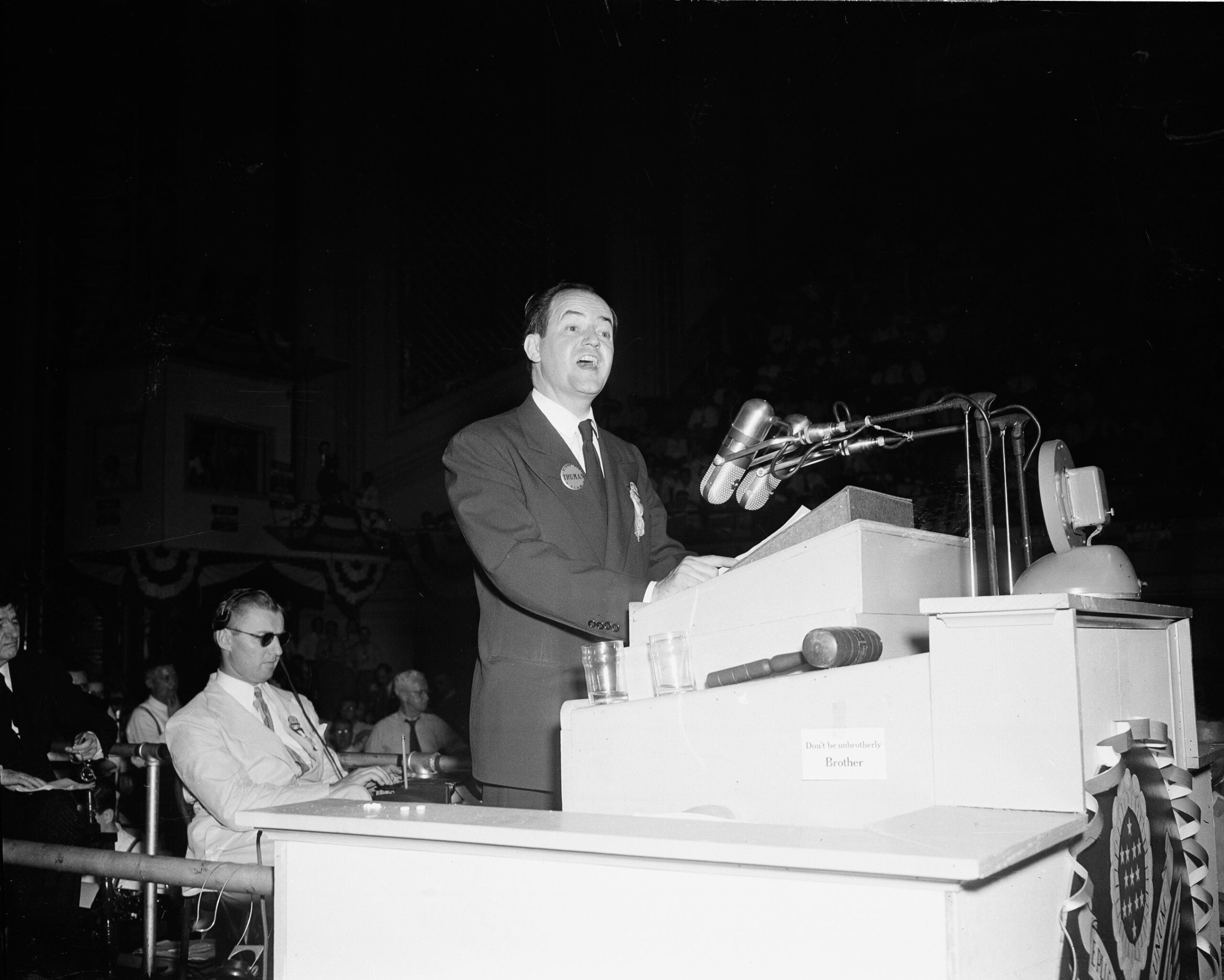The concentration of America’s fast food restaurants, and rates of obesity, are highest in low-income, inner cities. We learn how government policy helped fund a fast food boom in these areas during the 1960s, 70s, and 80s. We also talk with a guest about why she thinks it’s essential that policymakers and elected officials know their history.
Featured in this Show
-
Government Policy Helped Fill Inner Cities With Fast Food
Fast food restaurants seem to be everywhere we look, but nowhere are they more concentrated than in America’s low-income, urban areas. Often without healthier food options, inner city obesity rates are also higher. We’re joined by the author of a book tracing the history of fast food in urban America. She found that the government spent millions to help the fast food industry expand into inner cities, with the goal of revitalizing their economies.
-
How Fast Food Took Hold In Urban Areas
Since the first McDonald’s or Burger King, the fast food industry has grown into one of the most profitable industries in the United States and abroad. Fast food restaurants made nearly $200 billion in 2014 in the U.S. alone, according to Statista.
Part of the massive proliferation of fast food restaurants in the country can be chalked up to the simple economics of supply and demand. But in “Super Sizing Urban American: How Inner Cities Got Fast Food With Government Help,” professor Chin Jou writes that government intervention in the 1960s helped bring a glut of fast food restaurants to urban locations and could have had long-term public health implications.
The 1960s were a hotbed of unrest and change in the U.S., Jou said.
Riots in cities such as Newark, New Jersey, and Detroit, Michigan, and more threw into sharp relief simmering racial tensions and a lack of economic opportunities in racially divided cities.
Following the Watts Riots in Los Angeles, President Lyndon B. Johnson assembled a group of federal officials to investigate some of the root causes of the riots, including the economic factors that had a hand in the turmoil.
“The Johnson administration has this new sense of urgency about the need to economically develop African-American communities,” Jou said.
Johnson had a keen interest in reducing poverty throughout the country and his “War on Poverty” became one of the hallmark initiatives of his administration.
One of the government officials that made the trek to Los Angeles and Oakland, California, was Eugene Foley of the U.S. Small Business Administration,or SBA.
Foley was one of the first people in the Johnson administration to recommend economic initiatives, such as creating stable, long-term jobs, to reduce racial tensions in urban areas. Though now this may seem to be a simplistic approach to addressing systemic issues facing non-white communities, at the time it was seen as a step in the right direction.
With the Nixon administration came the development of the Office of Minority Business Enterprise, now the Minority Business Development Agency. Jou said this office along with initiatives in other government agencies, such as the U.S. Department of Housing and Urban Development, helped usher in new economic programs to benefit minority communities.
Jou also pointed out that as early as 1964, fast food restaurants were approaching the federal government for assistance with their minority enterprise initiatives. It was the combination of many different factors, including the government offering help to fast food companies, that helped set the stage for fast food companies to attract minority franchise owners and stake a claim in underserved locations.
“Before the late 1960s, inner-city communities were without these familiar fast food chains,” Jou said. “And now what we see is a transformation of the urban food landscape.”
But the introduction of these fast food chains in minority communities has been a double-edged sword. For some franchise owners, being able to own and operate their own business with the brand and blessing of McDonald’s, for example, provided a fast-track for upward mobility. But there have been criticisms that the introduction of inexpensive, fast food chains in low-income, majority-minority areas have potentially played a negative role in the public health of these communities, notably with rising rates of obesity.
Obesity is a multifaceted issue and can’t be blamed on one specific circumstance. However, studies have shown low-income communities typically have higher rates of obesity, and this is especially true when researchers have looked at the growing rates of childhood obesity. While fast food may not be the only culprit, some municipal governments have taken steps to bring more fresh food options into these underserved communities with the hopes of turning around the obesity crisis.
-
Historian: History Is 'Ethical Responsibility'
There’s no denying it: United States presidents are history-makers. But just how much American history do they need to know to do the job?
That question was up for debate earlier after President Donald Trump made comments earlier this month linking former President Andrew Jackson with the U.S. Civil War.
“I mean, had Andrew Jackson been a little later you wouldn’t have had the Civil War,” Trump told the Washington Examiner. “He was a very tough person, but he had a big heart. He was really angry that he saw with regard to the Civil War, he said ‘There’s no reason for this.’”
Fact checkers lit up social media, pointing out Jackson died nearly 16 years before the Civil War even began.
Historians like Margaret Storey, a professor of history at DePaul University, say U.S. presidents have an “ethical responsibility” to know our nation’s past.
“There’s so many aspects of what he said that are confusing and inaccurate. It was just truly stunning,” Storey said. “The president needs to be informed, especially about the Civil War, which probably, more than any event in our history, has shaped who we are as a country, for good and for ill.”
Storey said the president’s comments imply he has no understanding of slavery’s role in the Civil War — and Andrew Jackson’s role in expanding slavery.
“The expansion of slavery westward was facilitated directly by Andrew Jackson’s actions as president,” Storey said. “Jackson, of course, was the signer of the Indian Removal Act in 1830, which forcibly removed Indians off their land so that those lands could be settled by slaveholders in the south.”
She said a major issue of the Civil War was whether those new states should allow or prohibit slavery.
After the uproar, White House officials maintained Trump had not meant his comments literally.
“There’s a certain amount of hunting for, ‘What is it that Trump has done that’s dumb?’” Newt Gingrich said, according to The New York Times. “Trump’s not a student of history. Trump’s an extraordinarily successful, entrepreneurial personality who learns what he needs to know when he needs to know it.”
Still, Storey argues history is not simply about knowing what happened in the past, but also why it happened. History teaches both the causes and potential consequences of our actions, she said.
“We can understand human tendencies, and human failure and human potential by studying history,” she said.
Episode Credits
- Rob Ferrett Host
- Veronica Rueckert Host
- Dean Knetter Producer
- Judith Siers-Poisson Producer
- Chin Jou Guest
- Margaret Storey Guest
Wisconsin Public Radio, © Copyright 2024, Board of Regents of the University of Wisconsin System and Wisconsin Educational Communications Board.




